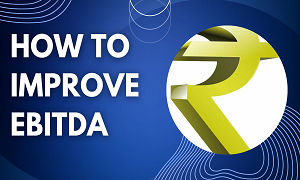22062023 Editorials STARTUPJARGON04:
- What are must-know STARTUP Jargon
- Why is EBITDA calculated
- What is EBITDA
- How should we calculate EBITDA, in our book of accounts
- Are there different methods for calculating EBITDA
In this fourth article, we are ready to analyze the already used terminology when bundled together, how it sounds and the effects on any organization. As for enthusiasts who are following this series, we have already discussed AMORTIZATION, DEPRECIATION and Earnings Before Interest and Taxes. In today’s topic, we will discuss EBITDA.
EBITDA is a financial metric that is widely used by companies to calculate business performance financially. This helps in controlling the operating expenses and thereby increasing the profits. Normally EBITDA is calculated as Operation income added to depreciation and amortization.
Stalwarts believe that an EBITDA average of 10% plus is a healthy financial sign of an organization’s growth. With this fundamental knowledge of the term let us take the plunge into the terminology in detail.
‘Define EBITDA (Earnings Before Interest, Taxes, Depreciation, and Amortization): EBITDA is a financial metric used to assess a company’s operating performance. It is commonly employed to evaluate the profitability of a business before accounting for non-operating expenses, financing costs, and tax obligations.
For STARTUPs in India, EBITDA can vary significantly depending on the industry, stage of growth, business model, and other factors. Since STARTUPs typically have higher expenses and lower revenues in their initial phases, it is common for them to experience negative EBITDA as they focus on growth and investment. However, as they mature and achieve scale, the aim is to improve EBITDA and eventually achieve positive earnings.
It’s important to note that EBITDA alone may not provide a complete picture of a STARTUP’s financial health. Other financial indicators, such as cash flow, net income, and revenue growth, should also be considered. Additionally, industry benchmarks and comparisons with competitors can provide further insights into STARTUP’s performance.
Therefore, the specific EBITDA figure for a STARTUP in India can vary greatly depending on various factors, and it would be best to examine the financial statements and performance of individual companies, to obtain accurate information.’
‘For all those who are interested to know in detail about the financial terms used by your auditors, we decided to start a series on financial terminology education. OMG! That sounds a little complicated, let us simplify that as a series on STARTUP Jargon.
In this series, we shall give the meaning of the various words used by the auditors and ways to better the phase of the STARTUP. However, we request each of you consult your financial advisors before deciding your strategy.
Every setup has its own methodology of growth and no two organizations are similar. Ultimately it is every founder’s dream to turn into unicorns and the ecosystem wants to see more such enthusiastic achievers. So wishing you all the very best in your endeavour hope our today’s topic on EBITDA cleared your perplexity, at least to some extent, on the terminology.’
Please like our pages: on Facebook & LinkedIn. #Way2World brings #StartUpNews from #StartUpResources about #StartUpFounders, #Co-Founders, #WomenEntrepreneurs, #WomenLeaders, #StartUpMentors, #StartUpInnovation #StartUpIncubators, #StartUpAccelerators and #StartUpListing. The #StartUpArticles, #StartUpReviews and #StartUpStories discuss #StartUpFunding, #IndianStart-Ups their #BusinessServices along with #StartUpName and #technologyimpactness. With Inputs from the Internet – RajKishan Ganta
DISCLAIMER: The above news item is provided for informational purposes only and does not constitute professional advice, legal opinion, or endorsement by WAY2WORLD. The accuracy, completeness, or timeliness of the information contained in this news item cannot be guaranteed. WAY2WORLD or its affiliates shall not be held liable for any errors, omissions, or damages arising from the use of the information provided. Readers are advised to verify the information from multiple sources and seek professional advice before making decisions based on the content of this news item. The views and opinions expressed in this news item are those of the author(s) and do not necessarily reflect the views of the publisher or its affiliates. WAY2WORLD does not endorse or promote any specific product, service, or organization mentioned in this news item unless otherwise stated. Readers are encouraged to use their discretion and judgment when interpreting and applying the information provided in this news item.

